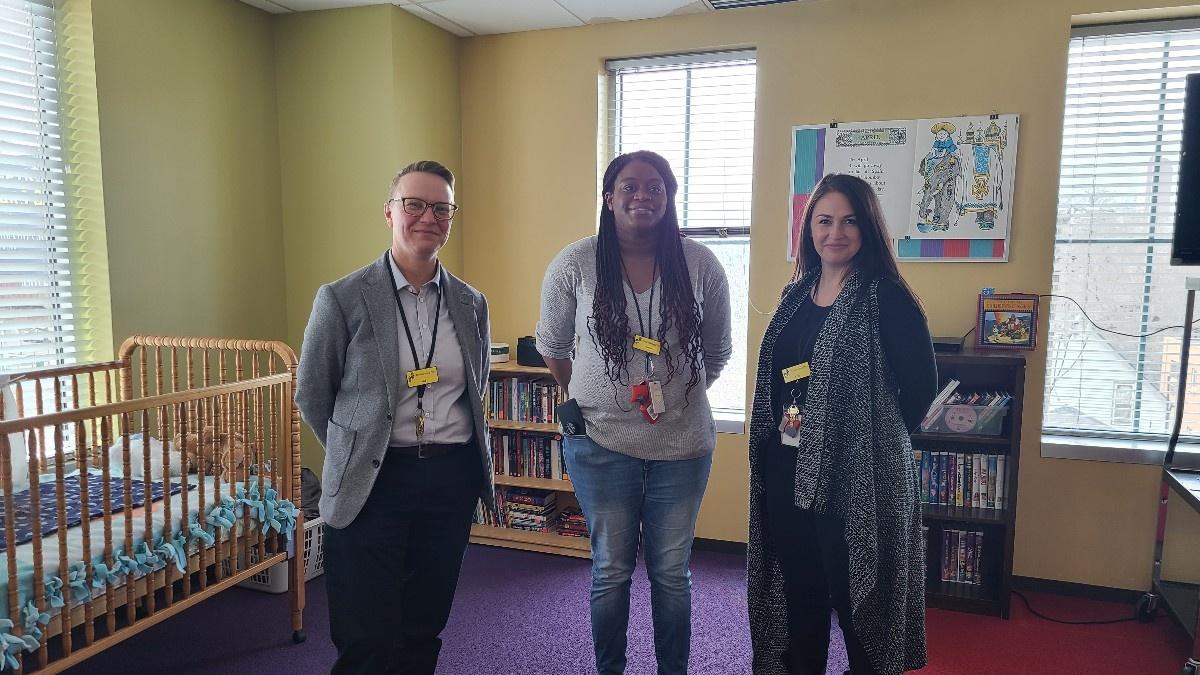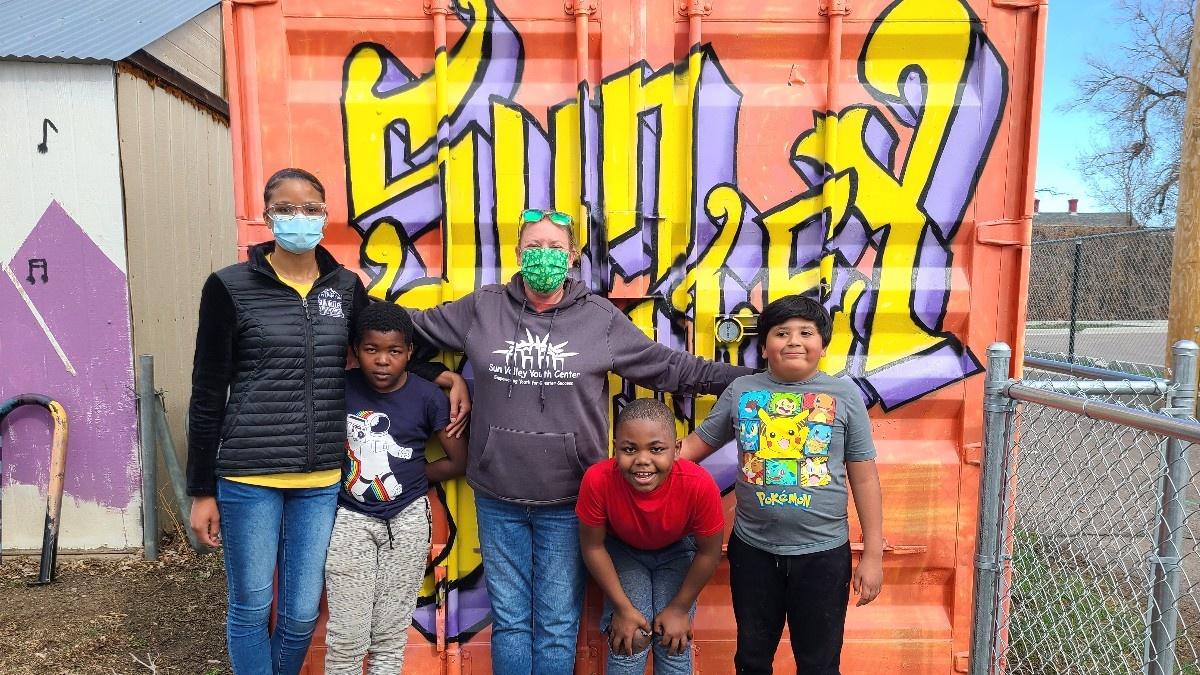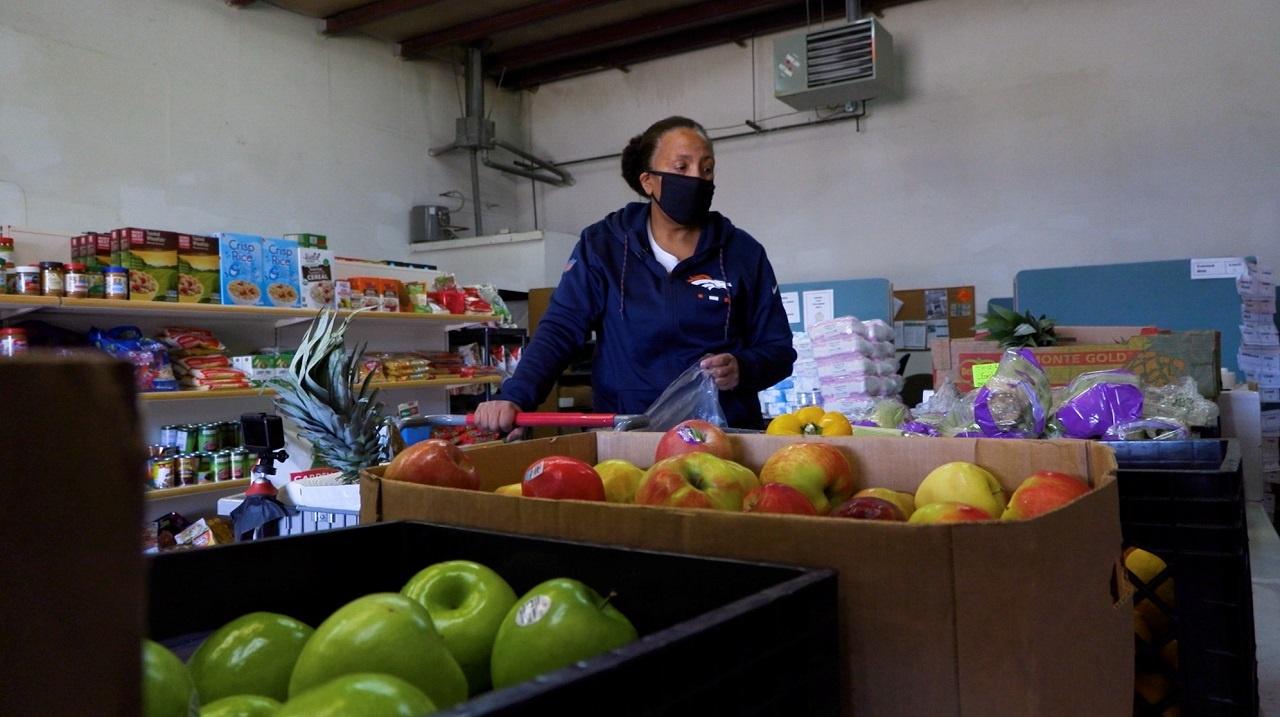DENVER – A report published by the Colorado Children’s Campaign last year indicated that food insecurity, housing instability and poverty rates have increased for Colorado families during the pandemic.
The Gathering Place offers a multitude of services to women, transgender individuals and their children living in poverty. Services are divided into two sections: emergency services meant to meet basic needs and services that support members’ journeys to stability.
Julia Stewart, the president of the organization, explained that the nonprofit originally served as a daytime drop-in shelter that allowed people to focus on opportunities to help them change their situations rather than focusing on street survival. While The Gathering Place still operates its day center, it also has a 24/7 shelter in a former motel.
“What we're really doing is shifting our programming to not just being a daytime shelter and thinking about how we can add intentionality in supporting people through their journey from this place of crisis and instability to a place of stability,” Stewart said.
Stewart believes that many people that engage with social services and human services agencies often experience being told what to do rather than being listened to.
The Gathering Place, according to Stewart, has a different approach. The organization seeks to give people the opportunity to convey what they want and what their goals are. Staff then helps members create a plan to meet those goals.
Building trust, community, and friendships
Ashley Johnson, The Gathering Place’s Family Program manager, added that some staff and volunteers have lived experience with homelessness, struggles with substance abuse, domestic violence or mental health illnesses and have been able to overcome such obstacles. Johnson, a victim of Hurricane Katrina, has experienced homelessness herself.
Johnson believes that being able to have honest, genuine conversations with members and connect through similar shared experiences can help build trust and show members that it is possible for them to overcome those barriers.
“I’m very honest with everyone who I work with and just allow them to actually see that, with time, you can make the changes that you need to make and to maintain the success that you may want,” Johnson said.
The Family Program provides all services in English and Spanish and offers formula, diapers, wipes, food bags and resource navigation. The program also has Nurturing Parenting classes for parents with children of all ages. Parents are able to join virtually and can join as many or as few sessions as they want.
Johnson often sees members connect to other parents going through similar experiences and build friendships.
Often, Johnson said, families going into homelessness feel shame that they cannot give their children a stable place to stay. They also worry that Child Protective Services will take away their kids.
During Nurturing Parenting classes, Johnson reminds parents that there isn’t a handbook on how to be a great parent. Johnson and other facilitators encourage parents to nurture themselves as much as their kids and to celebrate change and growth.
Addressing damaging stereotypes about living in poverty
Johnson emphasized that, despite the existing stereotype that individuals living in poverty are lazy, Johnson has seen many people — business owners, even — with full time jobs seek assistance through Temporary Assistance for Needy Families, or TANF, due to the pandemic.
Erin Atencio, director of wellness and recovery programs, believes that families were hit hardest by the pandemic and has seen a huge increase in families needing services.
“We've seen families come in that have been housed forever and the landlord's selling the property. And so they have to move and now they can't afford to pay rent,” Atencio said. “Some of them are going from being very successfully housed, living on their budget that they've had to just like rapidly falling or potentially rapidly falling.”
Atencio gets frustrated when she hears people judge individuals experiencing poverty for having children. Being a parent is hard work, even with resources, Atencio said.
According to Atencio, not all individuals have the bodily autonomy to choose whether or not they will have children. Atencio recounted working with individuals that did not want more children but also had partners or abusers that refused to use condoms
“To have something happen to you that’s really traumatic and then have society kind of look down on you for that … that has always bothered me,” Atencio said.
Johnson added that housing programs themselves can make it difficult for families living in poverty to get the help they want and need.
“Their main focus is sometimes single moms, which makes it hard for dads who are involved, but also makes it hard for grandparents and other family members,” Johnson said.
Theresa Ho is the RMPBS Kids digital content producer. You can reach her at theresaho@rmpbs.org.





